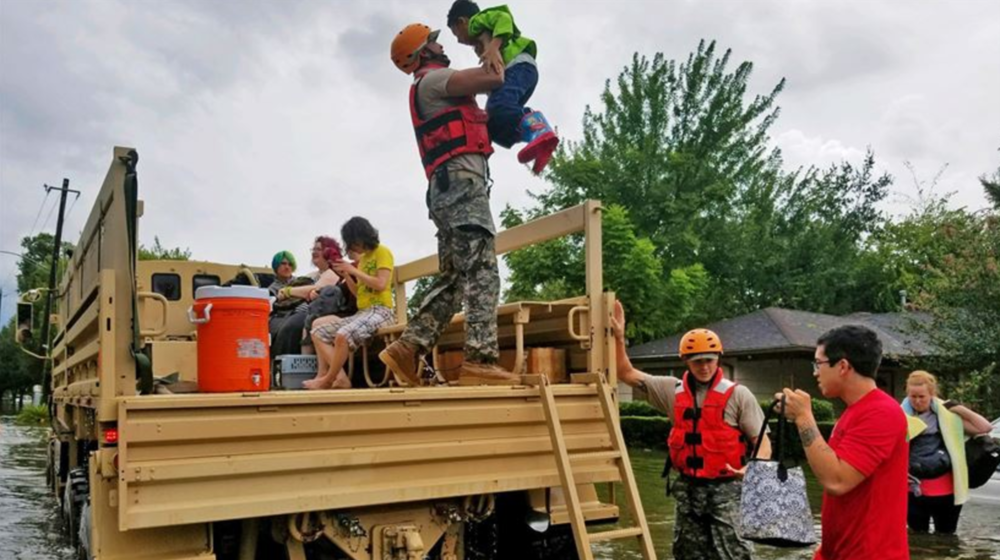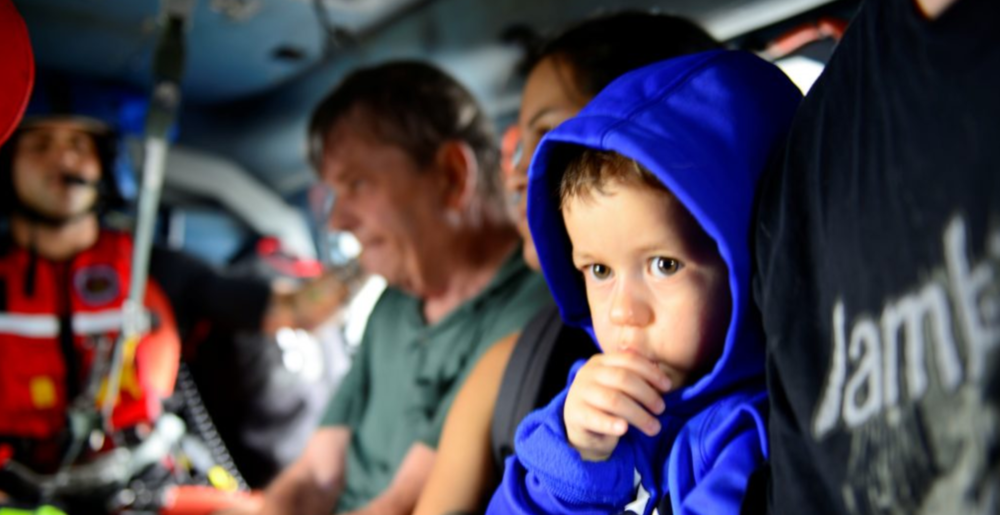
Section Branding
Header Content
5 Ways Georgia Teachers And Students Can Help Hurricane Harvey Victims
Primary Content

Since its touchdown in coastal Texas on August 25, Hurricane Harvey has already unleashed 15 trillion gallons of rain, directly impacting 13 million people. Weather experts anticipate another 5 trillion gallons of rain will fall before the end of the storm and early estimates claim $50 billion in damages. Houston schools, which offer food, safety, and shelter for over 250,000 students, are submerged in water.
This disaster is not unlike Hurricane Katrina, which devastated many of the same communities only 12 years ago. Teachers and students in Georgia, though not directly impacted by Katrina, served a critical role in relief efforts, opening their arms and classrooms to those displaced by the hurricane. With FEMA and the American Red Cross’s prediction that recovery from Hurricane Harvey will take years, it is likely that Georgia school communities will once again take in hurricane victims. Until then, here are ways you and your students can help those in need.

1. Start a Charity Fund Drive
Because disaster recovery will take years and needs will change over time, nonprofit groups recommend donating cash rather than items. Simple drives like bake sales, candy grams, wacky hat day, etc. can generate a lot of money. Use this New York Times article for a list of local and national organizations.
2. Donate Blood
Many high schools host annual blood drives, where teachers and students who are 18+ can donate. Students and other potential donors can also donate blood at local donor centers. Check out this list of American Red Cross donation centers in Georgia.
3. Feed a Child
With grocery stores and pantries flooded and food trucks unable to travel, access to uncontaminated food is limited to many communities. Consider donating to the Houston Food Bank to help feed a child. As little as $69 will help feed a child every weekend for a school year. Learn more about this opportunity here.
4. Talk with Your Students
Though it’s likely that most of your students will not be directly affected by the hurricane, it is important to talk to them about natural disasters and understanding the impact on others. PBS Kids has a wealth of resources to help students cope during challenging times. The American School Counselor Association also provides tips and resources on how to help kids deal with hurricanes and floods.
5. Share on Social Media
Because recovery will likely take years, it is important to encourage others to give to relief efforts now and in the future. Many nonprofit leaders worry that news regarding Hurricane Harvey will lose attention and efforts will lose momentum. Sharing on social media can help keep a spotlight on victims’ current and future needs.
How do you help children cope with and understand natural disasters? Let us know in the comment section.





